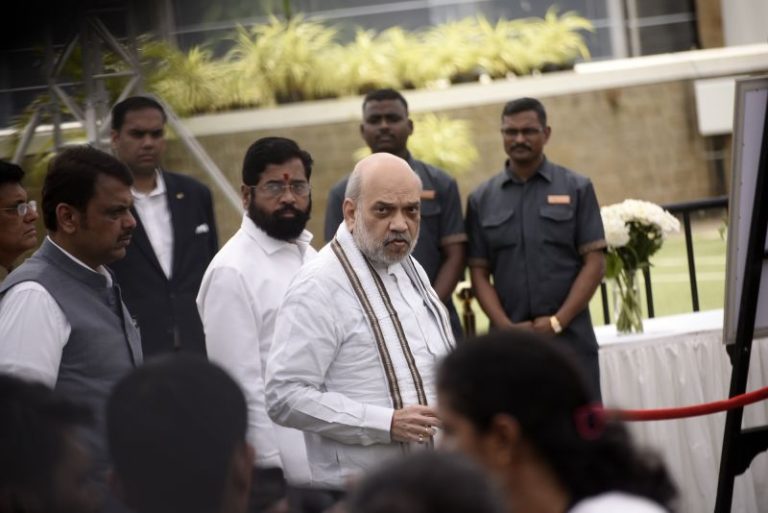A Canadian official alleged Tuesday that Indian Home Minister Amit Shah ordered a campaign of violence, intimidation and intelligence-gathering targeting Sikh separatists inside Canada.
Deputy Foreign Affairs Minister David Morrison told Parliament members of the national security committee that he had confirmed Shah’s name to The Washington Post, which first reported the allegations.
“The journalist called me and asked if it was that person. I confirmed it was that person,” Morrison told the committee.
Morrison did not say how Canada knew of Shah’s alleged involvement.
Prime Minister Justin Trudeau said a year ago that Canada had credible evidence agents of the Indian government were involved in the murder of Canadian Sikh activist Hardeep Singh Nijjar in British Columbia in June 2023.
Canadian authorities have repeatedly said they have shared evidence of that with Indian authorities.
Indian government officials have repeatedly denied Canada has provided evidence and have called the allegations absurd. India’s embassy in Ottawa didn’t immediately respond to messages for a request for comment on the allegation against Shah.
On Oct. 14, Canada expelled the Indian high commissioner and five other diplomats, alleging they were persons of interest in multiple cases of coercion, intimidation and violence aimed at quieting a campaign for an independent Sikh state known as Khalistan.
Canada is not the only country that has accused Indian officials of plotting an assassination on foreign soil. The United States Justice Department announced criminal charges in mid-October against an Indian government employee in connection with an alleged foiled plot to kill a Sikh separatist leader living in New York City.
In the case announced by the Justice Department, Vikash Yadav, who authorities say directed the New York plot from India, faces murder-for-hire charges in a planned killing that prosecutors have previously said was meant to precede a string of other politically motivated murders in the United States and Canada.
Nathalie Drouin, Trudeau’s national security adviser, told the committee Tuesday that Canada has evidence the Indian government first gathered information on Indian nationals and Canadian citizens in Canada through diplomatic channels and proxies.
She said the information was then passed to the government in New Delhi, which allegedly works with a criminal network affiliated with Lawrence Bishnoi.
Bishnoi is currently in prison in India, but Drouin said his vast criminal network has been linked to homicides, assassination plots, coercion and other violent crimes in Canada.
Before the Royal Canadian Mounted Police went public with allegations that Indian diplomats were persons of interest in criminal investigations, Drouin said there was an effort to work with the Indian government to ensure accountability.
Drouin said a meeting was held with Modi’s national security adviser, Ajit Doval, in Singapore two days earlier.
She said the decision was made to go public when it became evident the Indian government would not cooperate with Canada on proposed accountability measures.
That included asking India to waive diplomatic immunity for the persons of interest, including the high commissioner in Ottawa. Drouin said this was not seen as likely.
The Royal Canadian Mounted Police said it took the extraordinary step of talking publicly about ongoing investigations because of threats to public safety.
The Indian government denies the allegations and has expelled six Canadian diplomats in return.
Nijjar, 45, was fatally shot in his pickup truck after he left the Sikh temple he led in Surrey, British Columbia. An Indian-born citizen of Canada, he owned a plumbing business and was a leader in what remains of a once-strong movement to create an independent Sikh homeland.
Four Indian nationals living in Canada were charged with Niijar’s murder and are awaiting trial.
Drouin and Morrison were called as witnesses at the committee alongside Royal Canadian Mounted Police Commissioner Mike Duheme, as well as the director of Canada’s spy service.



